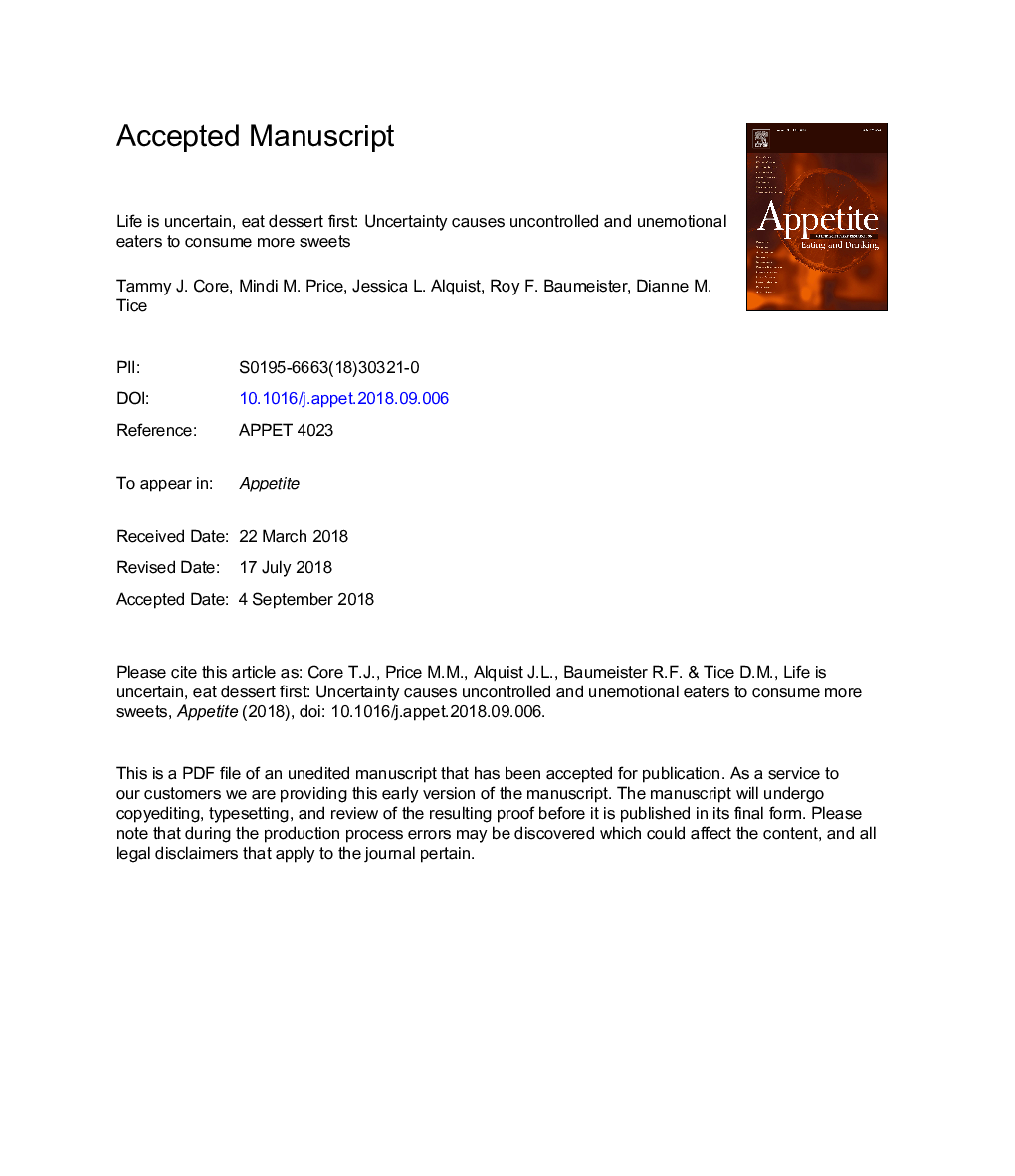| Article ID | Journal | Published Year | Pages | File Type |
|---|---|---|---|---|
| 10140384 | Appetite | 2018 | 23 Pages |
Abstract
Sometimes even dieters with the best self-control overindulge. Uncertain situations may undermine the self-control of even well-controlled eaters. This study was designed to test the hypothesis that uncertainty increases unhealthy snacking. Participants were either told that they would be giving a speech, that they would be listening to a speech, or that they would find out later whether they were to give a speech or not. Among participants who typically reported good control over their eating or scored low on emotional eating, participants who were uncertain about whether they would be giving a speech ate more candy than participants who expected to not have to give a speech and even those who expected to have to give a speech. Participants who reported poor control over their eating or scored high on emotional eating did not eat significantly more when uncertain. These findings suggest that, for people who are typically able to control their eating, uncertainty increases snacking more than certainty of a negative outcome.
Related Topics
Life Sciences
Agricultural and Biological Sciences
Food Science
Authors
Tammy J. Core, Mindi M. Price, Jessica L. Alquist, Roy F. Baumeister, Dianne M. Tice,
